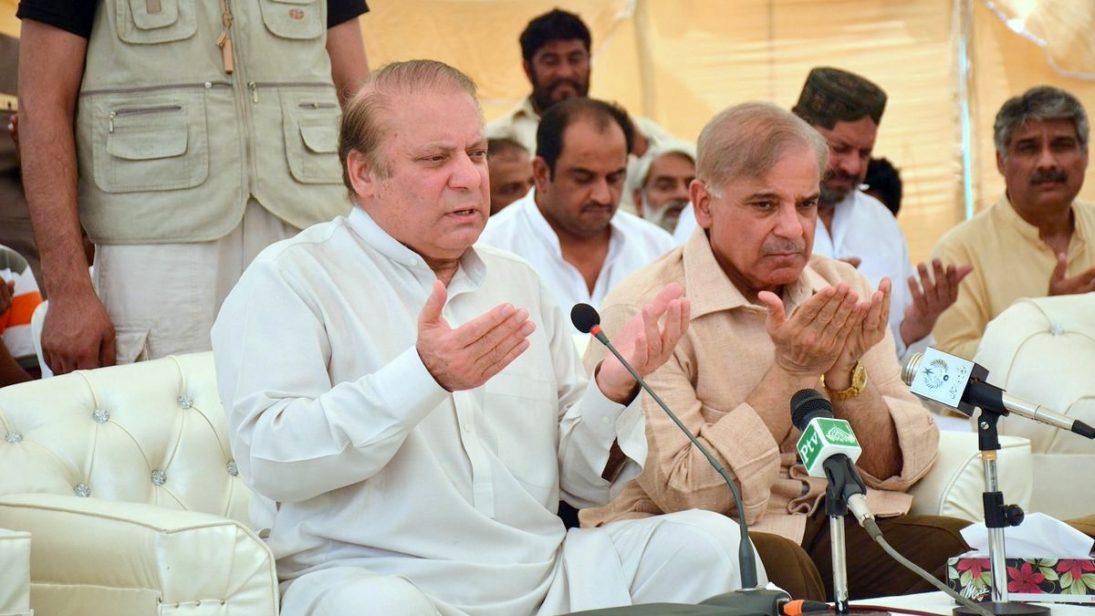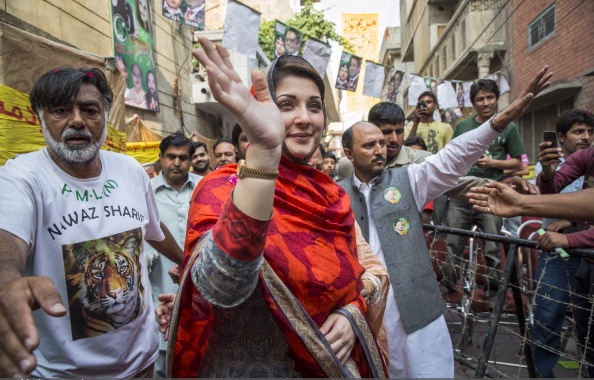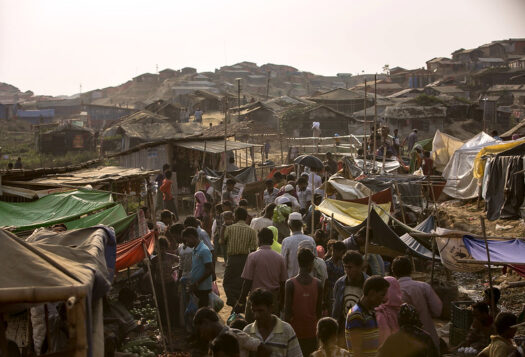
When Nawaz Sharif was re-elected prime minister in 2013, Pakistan was considerably different from his previous term in 1999. Major challenges to the country included a fragile economy, insufficient energy, and rampant terrorism. Sharif went on to tackle all these issues. However, following a Supreme Court (SC) verdict on corruption charges brought against him during the Panama Papers case, Sharif was disqualified from office in July 2017, marking the third time he was forcibly removed before the completion of his term.
Sharif and his party, the Pakistan Muslim League-Nawaz (PML-N), have amassed public support in the wake of his discharge and political pundits are predicting another PML-N victory in the upcoming Pakistani elections, to be held in July this year. A PML-N win is likely for four reasons: a weak SC verdict against Sharif; his approach to terrorism, the economy, and the energy deficit; Sharif’s daughter Maryam Nawaz’s foray into politics; and a fragmented opposition.
Weak Verdict Against Sharif and Targeting of PML-N
Sharif’s ouster was triggered by the Panama Papers, which linked a number of offshore accounts and illegal property transactions to the Sharif family. However, the final SC ruling had nothing to do with that and was based on flimsy charges of Sharif failing to declare a source of income in his nomination papers, which experts said was not legal basis for dismissal.
In addition to his disqualification, the SC barred Sharif from leading his party as its president. Interestingly, in September 2017, the Parliament had passed Election Bill 2017, allowing a disqualified person to lead their party. However, the Bill was challenged in the SC by the leadership of the Pakistan Tehreek-e-Insaf (PTI), Pakistan People’s Party (PPP), and Awami League on the grounds that it contradicts several articles of the Pakistan Constitution – especially articles 62 and 63, under which one cannot qualify as an assembly member if they are not “sadiq” and “ameen” (truthful and trustworthy). As a result, Sharif was deemed ineligible to retain his presidency of the party. PML-N viewed the SC’s decision, announced just before the Senate polls, as pre-poll rigging that targeted Sharif at the behest of the opposition.
Despite the unfavorable verdict, the PML-N now seems to be bouncing back as Sharif astutely presents his case to the masses in numerous public rallies. Moreover, important wins in local and provincial elections, where the PML-N won by-elections at NA-120 (Lahore), PP-20 (Chakwal), NA-154 (Lodhran) and PP-30 (Sargodha), and securing the majority in the Senate indicate that perhaps Sharif’s narrative has successfully made inroads and gained public traction.
Tackling Terrorism, Economy, and Energy Woes
Following a deadly attack on the Army Public School in Peshawar in December 2014, which took 141 lives, Sharif vowed to end terrorism. This became the driving force behind a joint civil-military resolve towards eliminating terrorism, with a civil-military consensus establishing the National Action Plan (NAP) to this end. Significant steps ordered by Sharif and undertaken through the NAP include legal support for those actively fighting against terrorists and the activation of the National Counter Terrorism Authority (NACTA). Furthermore, Sharif’s choice of Chief of Army Staff appointees Lt. General Raheel Sharif in 2013, followed by General Qamar Bajwa in 2016, proved beneficial as the army initiated Operation Zarb-e-Azab (2014) and Operation Radd-ul-Fasaad (2017) respectively under these chiefs, aimed at eliminating militant hideouts in the country. As a result of this civil-military cooperation, terrorism has been curtailed significantly within the country.
Due to the persisting terrorism threat, Foreign Direct Investment (FDI) in Pakistan was hindered, with rising debt negatively impacting the country’s reputation. Largely due to the massive flow of Chinese investment through the China-Pakistan-Economic-Corridor (CPEC), the Pakistan economy is steadily reviving. With a growth rate of 5.3 percent in 2016-2017, the highest in 10 years, Pakistan’s economic outlook is positive as CPEC projects propel it further. Sharif has been a vocal advocate of CPEC, which has greatly assisted in alleviating Pakistan’s energy deficit. Sharif’s 2013 campaign pledged to address this crisis, the largest manifestation of which came in the form of electric load shedding, affecting all industries and walks of life, and hampering the country’s growth. Four years later, with special attention to energy production projects through CPEC, there has been a sharp reduction of said deficit.

The Maryam Nawaz Factor
Since her father’s ouster, Sharif’s daughter, Maryam Nawaz, has become the face of the resistance and a sign of resilience. Though she and her family have constantly been pilloried by PTI head Imran Khan, she has emerged from the periphery of party meetings to help with damage control. To this end, Nawaz has played a crucial role in resisting and subsequently answering her opponent’s verbal onslaught, visiting constituencies and campaigning for the by-elections at the NA-120 seat, which her mother won. Although she faces graft charges of her own and is frequently targeted in the media, she has made her presence felt through frequent and blunt statements even as more seasoned party affiliates have remained tight-lipped. She has further spread her father’s narrative through organizing social media conventions, allowing the party to earn lost ground. Her aggression has enabled party loyalists to speak candidly. In a short span of time, Nawaz has become a prominent political figure, with debates regarding her role in the party and the country’s politics amid predictions for a future premiership role.
Fragmented Opposition
Khan, arguably the most formidable political challenge to the PML-N, may be losing appeal. Leading up to the 2013 elections, the Khan-led PTI began amassing support, especially among the youth in Pakistan. After taking charge of Khyber Pakhtunkha (KPK), PTI promised to revolutionize the province by reforming policing, education, health, and other socio-economic issues. Furthermore, Khan pledged to eradicate corruption and terrorism within a 90-day period, but ground realities expose contradictory scenarios five years on.
PTI frequently makes headlines for the wrong reasons, including Khan’s third marriage earlier this year, and PTI’s recent acceptance of controversial public figure Amir Liaquat into the party. Moreover, PTI’s support of known terror affiliate Darul Uloom Haqqania and its head Maulana Sami ul Haq’s electoral campaign, which PTI later rescinded, casts a doubt over their commitment to the elimination of terrorism in Pakistan. Above all, Khan has failed to present KPK as the “model province” he initially envisioned. Thus, the weakening of Khan’s agenda, with many prominent advocates renouncing their support of PTI, suggests the party faces an “existential threat.”
Reality Check
Making predictions about Pakistan’s politics is neither easy nor wise. However, the troubling narrow legal grounds for the Panama verdict and a fragmented opposition have allowed for the current regime to manipulate the situation in its favor. Where the opposition wastes time name-calling, finger-pointing, and staging sit-ins, the PML-N is going into the elections with public sympathy and a promise that it will deliver. Sharif might not return to power, but his narrative has gained much momentum. The ordinary Pakistani voter, however, is less interested in political power plays and more in seeing constituency issues resolved. PML-N lawmakers are optimistic that they have served the masses despite numerous impediments. Should the situation continue on its current path, the PML-N has definitive chances of a positive outcome in the upcoming elections, making history yet again.
***
Image 1: Shehbaz Sharif via Flickr
Image 2: Daniel Berehulak via Getty Images


